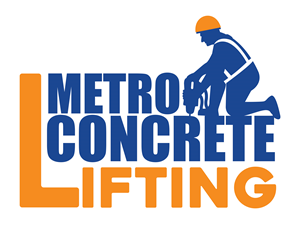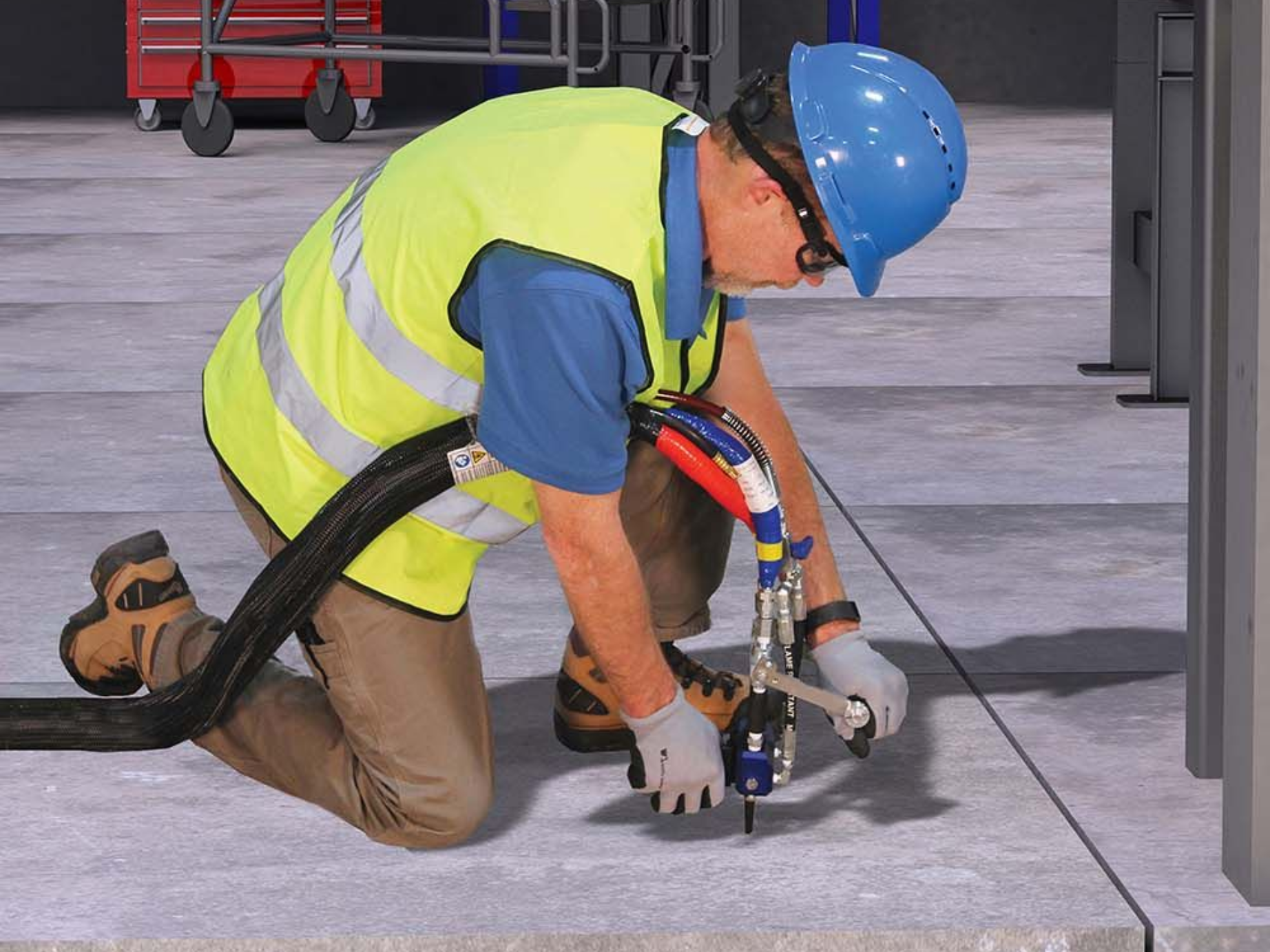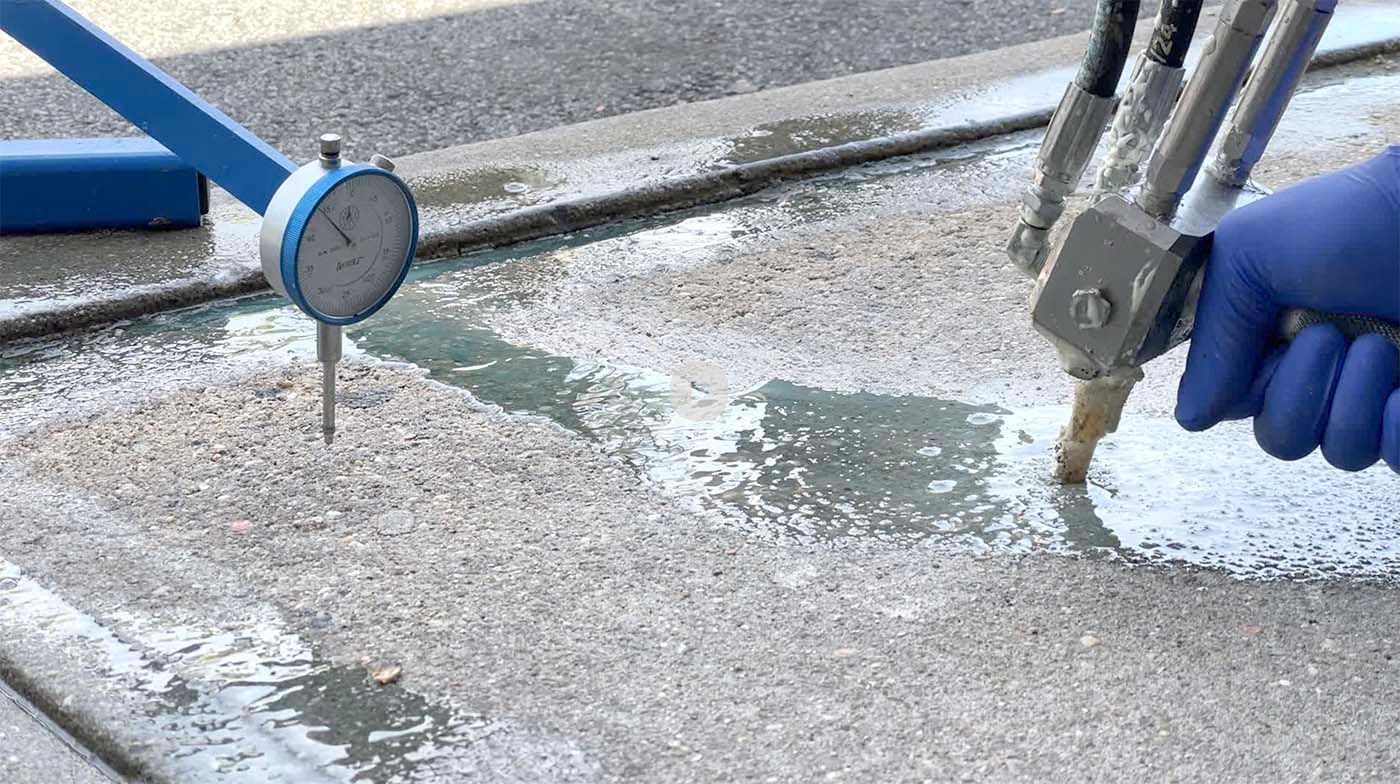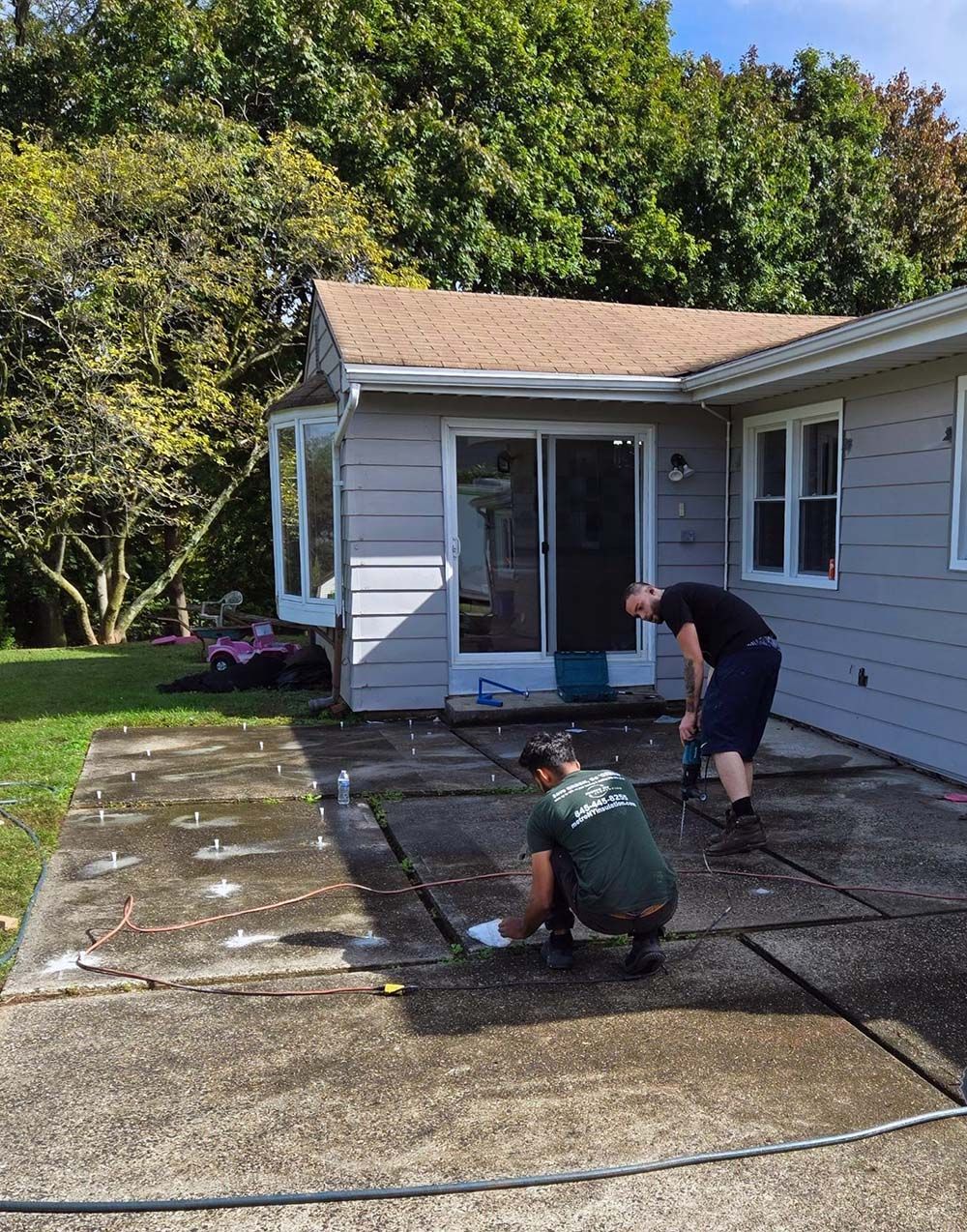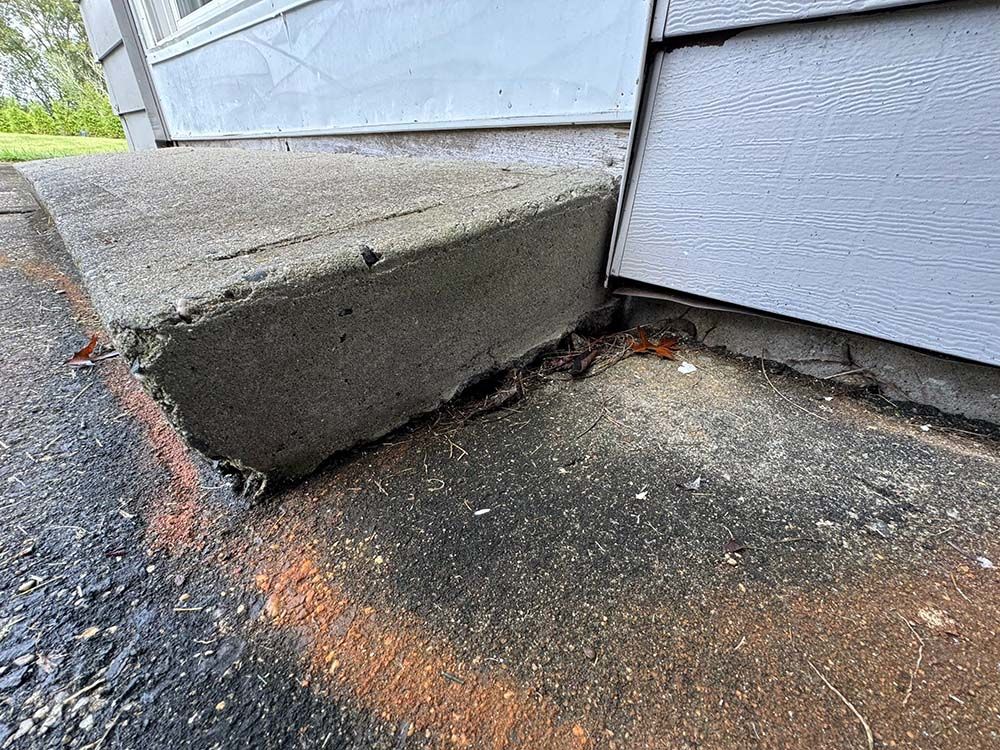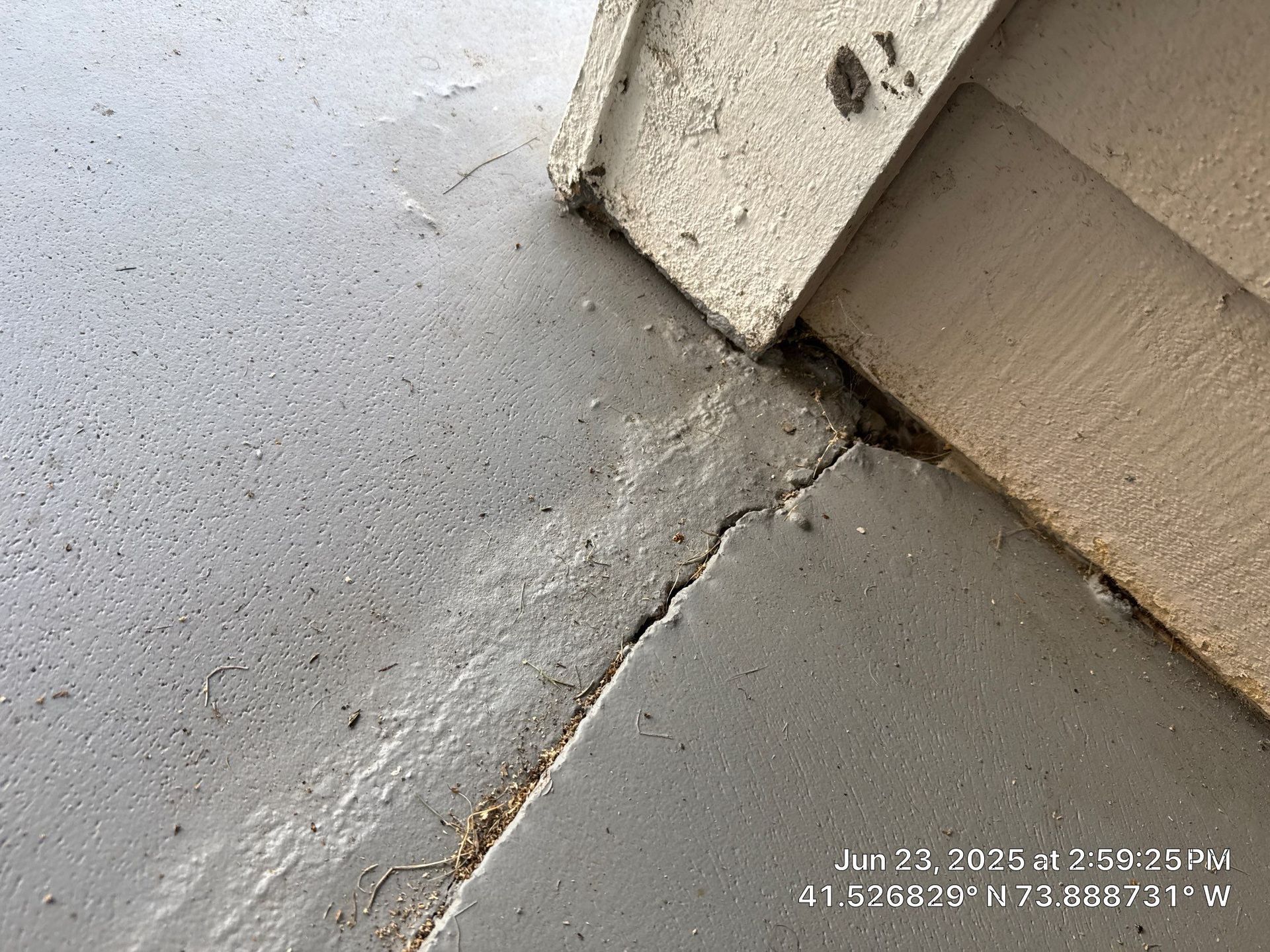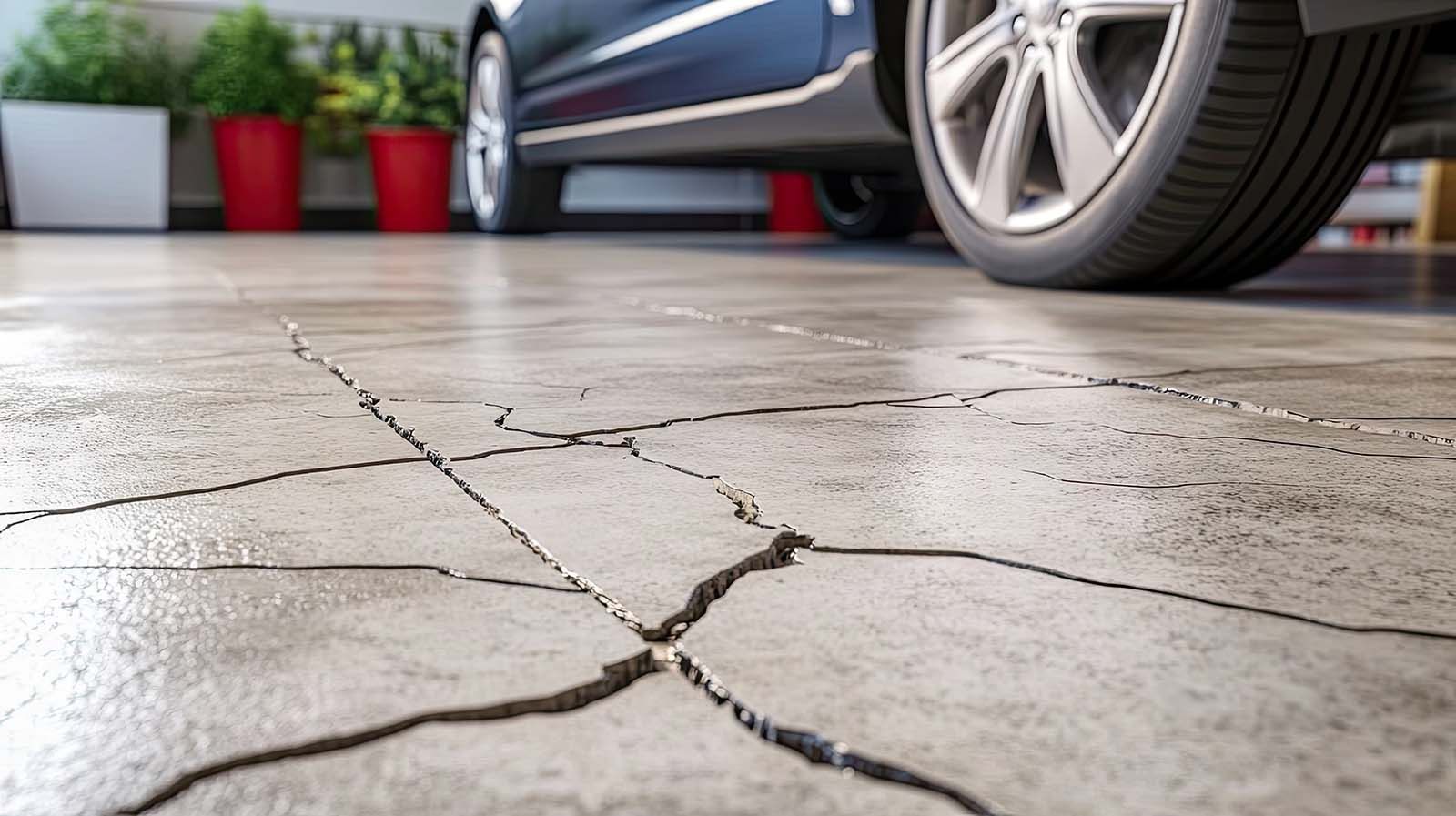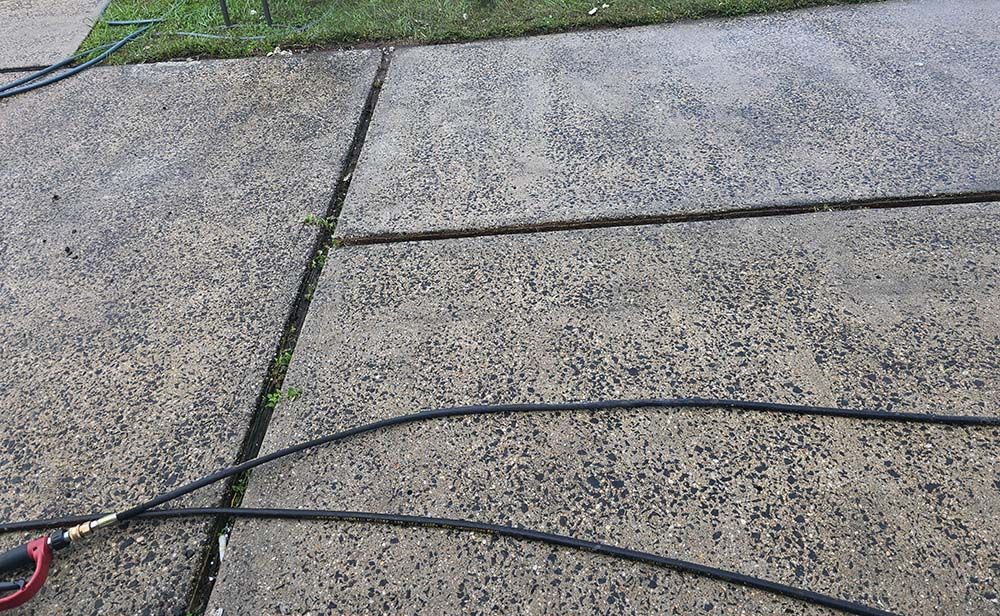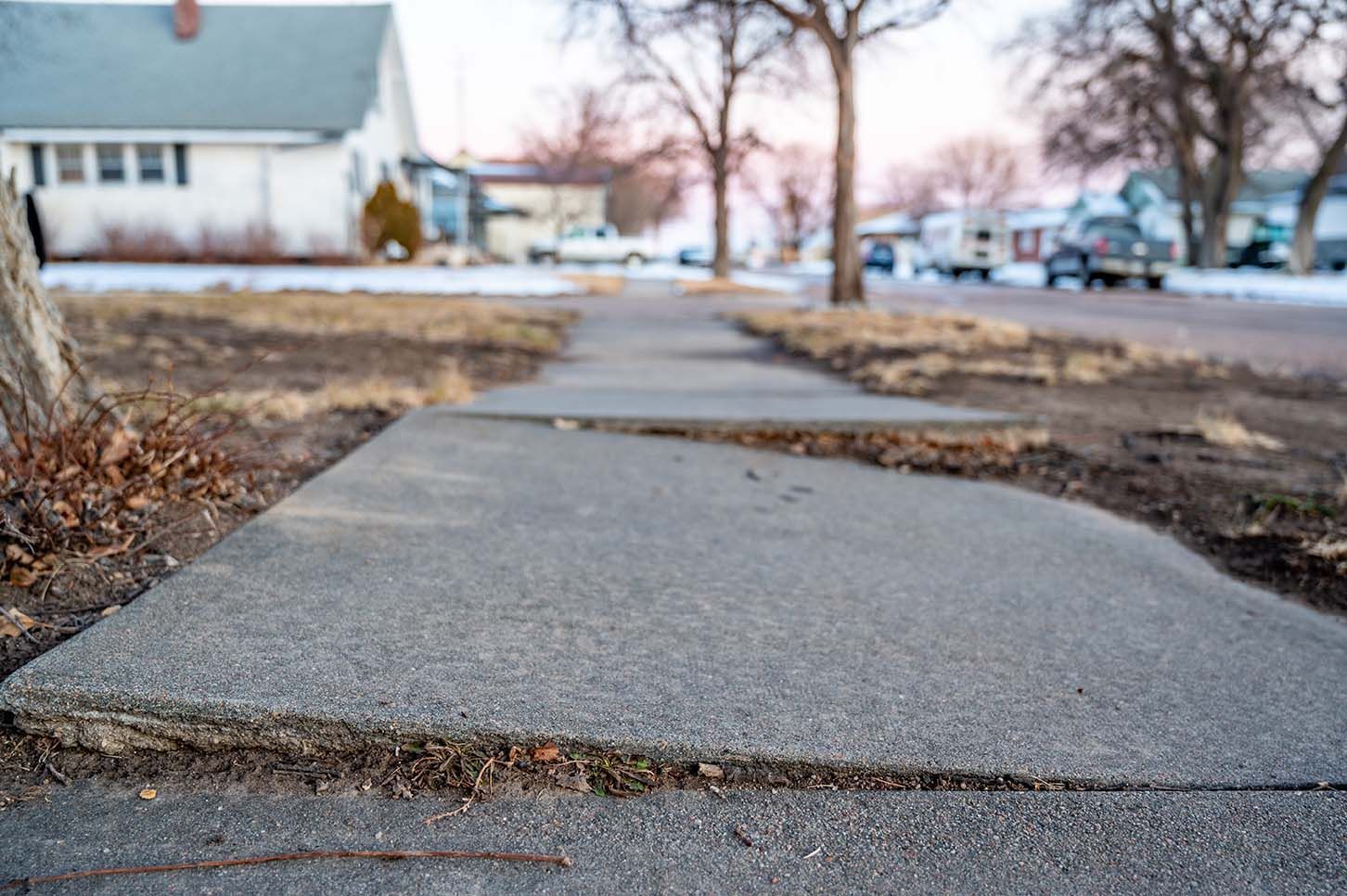What Causes Concrete to Sink? (And How to Prevent It)
Request A Free EstimateConcrete sinks when the ground beneath it shifts, erodes, or settles. This can happen due to poor soil compaction, water damage, freeze-thaw cycles, tree roots, or heavy loads. The good news? You can prevent it—and fix it—without tearing it out.
“I Thought It Was Just Settling...”
You stepped onto your walkway and noticed a dip. A small one.
Then the next season… it sank a little more.
Now your guests are stumbling. You’re embarrassed to have people over. You’re worried your kids or parents might trip.
You’re not alone.
We see this all over New Jersey, Westchester, and the Lower Hudson Valley—especially in older homes, homes built on clay, or areas with bad drainage.
But don’t panic. We’ll explain what causes concrete to sink—and how to stop it from getting worse.ource.
Why Does Concrete Sink?
1. Poor Soil Compaction
After your home or walkway was built, the soil beneath the concrete may not have been packed tightly enough. Over time, it settles—leaving the slab above unsupported.
2. Water Erosion & Drainage Issues
Rainwater or leaking downspouts can wash away the soil under your slab, especially if it’s clay or sandy soil. Without that support, the slab begins to sink.
3. Freeze-Thaw Cycles
In the Northeast, freezing and thawing is brutal on concrete. Water expands as it freezes, lifting slabs slightly… then it thaws, leaving voids. Over time, this back-and-forth wrecks your slab’s base.
4. Tree Roots
Roots push up or shift slabs from below. Then when the roots dry out, they leave gaps—and the concrete above drops into them.
5. Heavy Loads
Parking cars or placing storage on top of a slab that wasn’t designed for it? It might start to sink or slope as the ground compresses.
6. Poor Installation
Sometimes the slab was just poured too thin… or with no proper gravel base. That means it was doomed from the start.
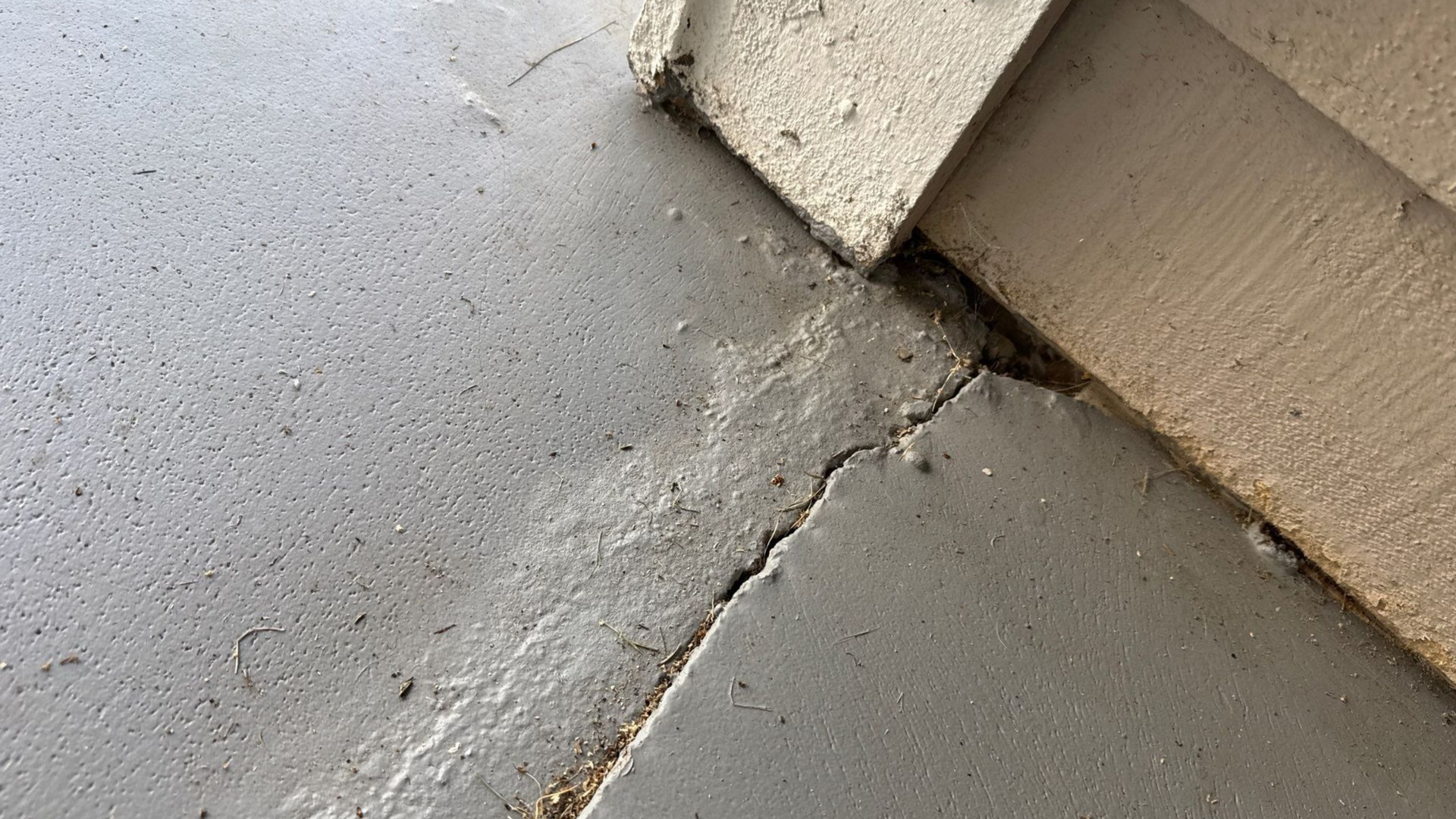
How to Prevent Concrete from Sinking
Concrete doesn’t have to be a constant source of stress. Here’s how to stop the cycle:
√ Install proper drainage
√ Extend downspouts 4–6 ft away from slabs
√ Seal cracks early
√ Re-grade soil around the perimeter
√ Avoid placing heavy items on unsupported edges
√ Call for an inspection at the first sign of settling
The Best Solution: Foam Concrete Lifting
If your slab is already sinking, you don’t have to replace it.
Polyurethane foam lifting is fast, clean, and cost-effective. We inject a special foam beneath the slab that:
- Expands to fill gaps
- Lifts the concrete precisely
- Hardens into a waterproof, durable base
- Stabilizes the soil and prevents future sinking
Most jobs are done in hours—and ready to walk or drive on the same day.
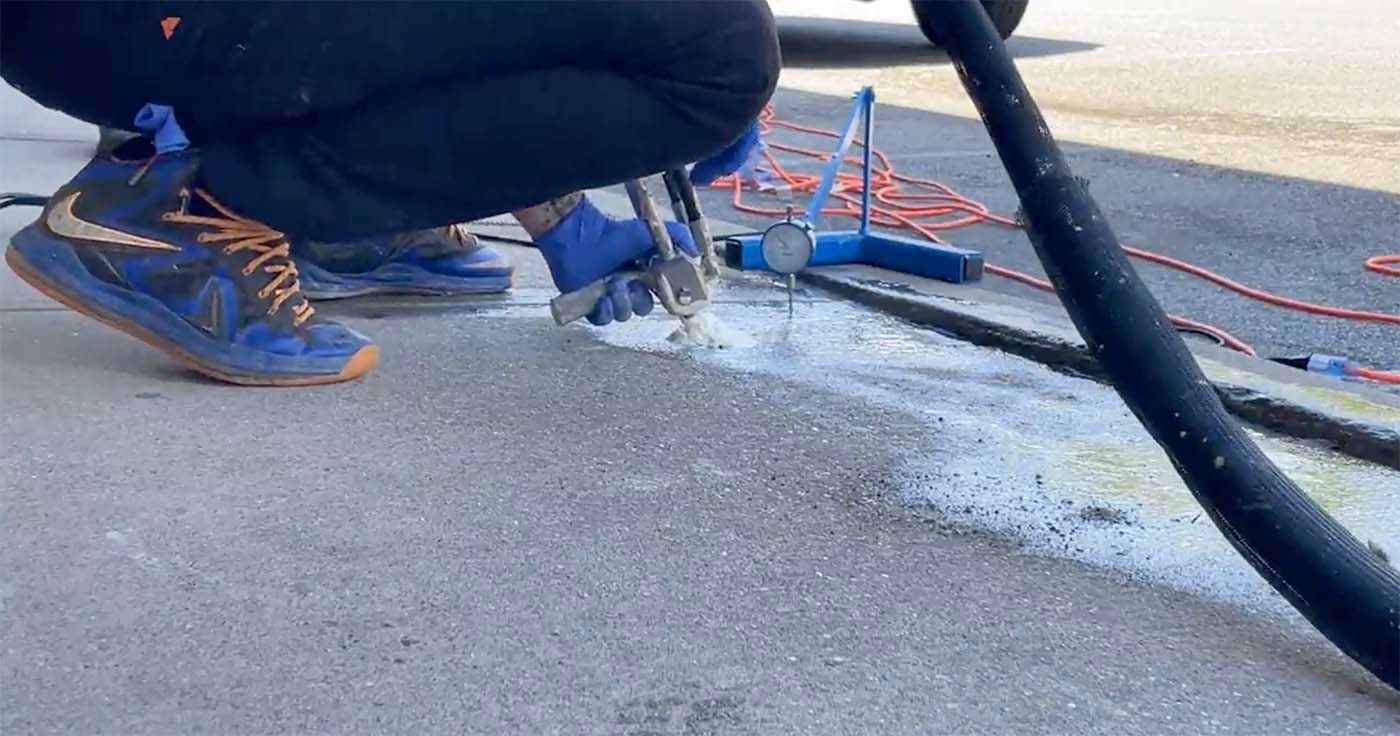
Why This Happens So Often in NJ & NY
Our area sees constant freeze-thaw cycles, tree-lined properties, and aging infrastructure. Add in heavy spring rains and poor soil in some developments, and it’s no wonder sinking slabs are so common.
We’re local. We know what to look for. And we can fix it right—the first time.
Final Thought: Don’t Wait for a Crack
If you’re seeing sinking, sloping, or gaps around your slabs—it’s not just “settling.”
It’s a sign that your concrete is slowly failing… and could become a trip hazard, curb appeal issue, or a liability.
We can help.
Serving New Jersey, Westchester, and the Lower Hudson Valley
Learn more about our
concrete leveling services
FAQ'S
What is the most common cause of sinking concrete?
Usually, it’s poor soil compaction or water erosion that weakens the support beneath the slab.
Can sunken concrete be fixed without tearing it out?
Yes! Foam concrete lifting is a non-invasive, affordable solution that raises your slab from below.
Will my concrete sink more if I ignore it?
Most likely, yes. Erosion and weather will continue to affect unsupported areas.
How much does it cost to level sunken concrete?
Foam leveling usually costs 40–70% less than full replacement, depending on slab size and depth.
Is Metro Concrete Lifting licensed and insured?
Absolutely. We’re a woman-owned, family-run business—and we treat your property like our own.
